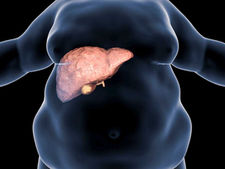
Bladder Disorders
What is Overactive Bladder (OAB)?
Overactive bladder (OAB); It is a disease in which the person complains of sudden urge to urinate, frequent urination day and night, and urinary incontinence along with a feeling of sudden urgency that can be seen in some patients, without any underlying cause. OAB findings are seen in an average of 17% of the population. This disease is more common in women than in men, and its incidence increases with age in both genders. In addition to its physical effects such as frequent urination and urinary incontinence, OAB also affects your social life. Frequent urination disrupts sleep quality and causes problems such as daytime sleepiness, distraction, and decreased work efficiency.
How is Overactive Bladder Diagnosed?
The first step in diagnosing OAB is the patient's history and physical examination. If necessary, urine analysis, ultrasonography, uroflowmetry, urodynamics, and cystoscopy can be performed to distinguish it from diseases with similar findings.
What are the Treatment Methods for Overactive Bladder?
Regulation of fluid intake; Sufficient (at least 1.5 lt/day) and regular fluid intake. Restricting fluid intake before long trips and before going to bed at night. Restricting drinks with diuretic effects such as tea, coffee and alcohol. Avoid using artificial sweeteners (aspartame, etc.), which are irritating to the bladder. Weight control is especially effective on urinary incontinence. Exercises to strengthen pelvic floor muscles
Drug Treatment
The aim of drug treatment is to stop sudden involuntary contractions in the bladder muscles, increase bladder capacity and prevent urinary incontinence.
This procedure, which has an effectiveness lasting approximately 6-12 months, aims to reduce patients' involuntary bladder contractions and increase bladder capacity; In this way, complaints such as frequent urination and urinary incontinence are relieved. Bladder Augmentation Surgery is a method that is rarely used in severe and resistant cases where other treatment methods have failed.
Kiss. Dr. Serhat Ozgun
prostate surgery, laser lithotripsy, holep, prostate cancer, prostate, prostate surgery, laser lithotripsy, holep, prostate cancer, does SSI cover prostate surgery, prostate health, urology, prostate diseases, prostate treatment, prostate surgery, laser prostate surgery, prostate problems, benign prostate enlargement, prostate symptoms, prostate biopsy, prostate examination, prostate ultrasound, prostate hormone therapy, prostate biopsy result, prostate cancer stages, prostate cancer treatment, prostate cancer symptoms, prostate cancer risk factors, prostate cancer diagnosis
FOR INFORMATION AND APPOINTMENT, YOU CAN LEAVE YOUR NUMBER OR ASK OUR EXPERTS
YOU CAN LEAVE YOUR NUMBER FOR INFORMATION AND APPOINTMENT AND ASK QUESTIONS TO OUR EXPERTS



-04.png)
-06.png)
-05.png)
-08.png)
-07.png)























